Check Keyword Rankings: Complete Guide to Track Search Results
Sep 12, 2024
Written by Casey Bjorkdahl

Casey Bjorkdahl is one of the pioneering thought leaders in the SEO community. In 2010, Casey co-founded Vazoola after working for a Digital Marketing Agency for five years in New York City. Vazoola is now one of the fastest growing and most widely recognized SEO marketing firms in the country.
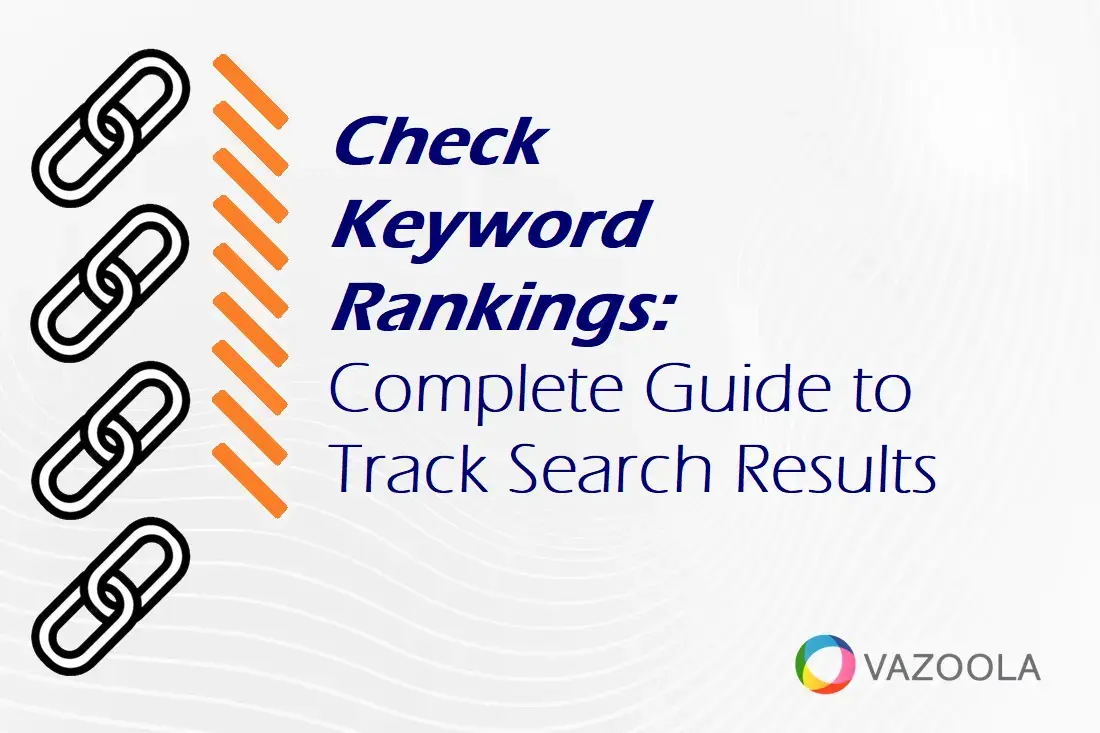
Keyword rankings play a crucial role in SEO success. But how do you check website ranking for keywords?
Based on our extensive experience, we’ve learned that monitoring where your site ranks for important keywords helps you understand your visibility in search results and guides your SEO strategies. Tracking these rankings can reveal how well your content performs and identify areas for improvement.
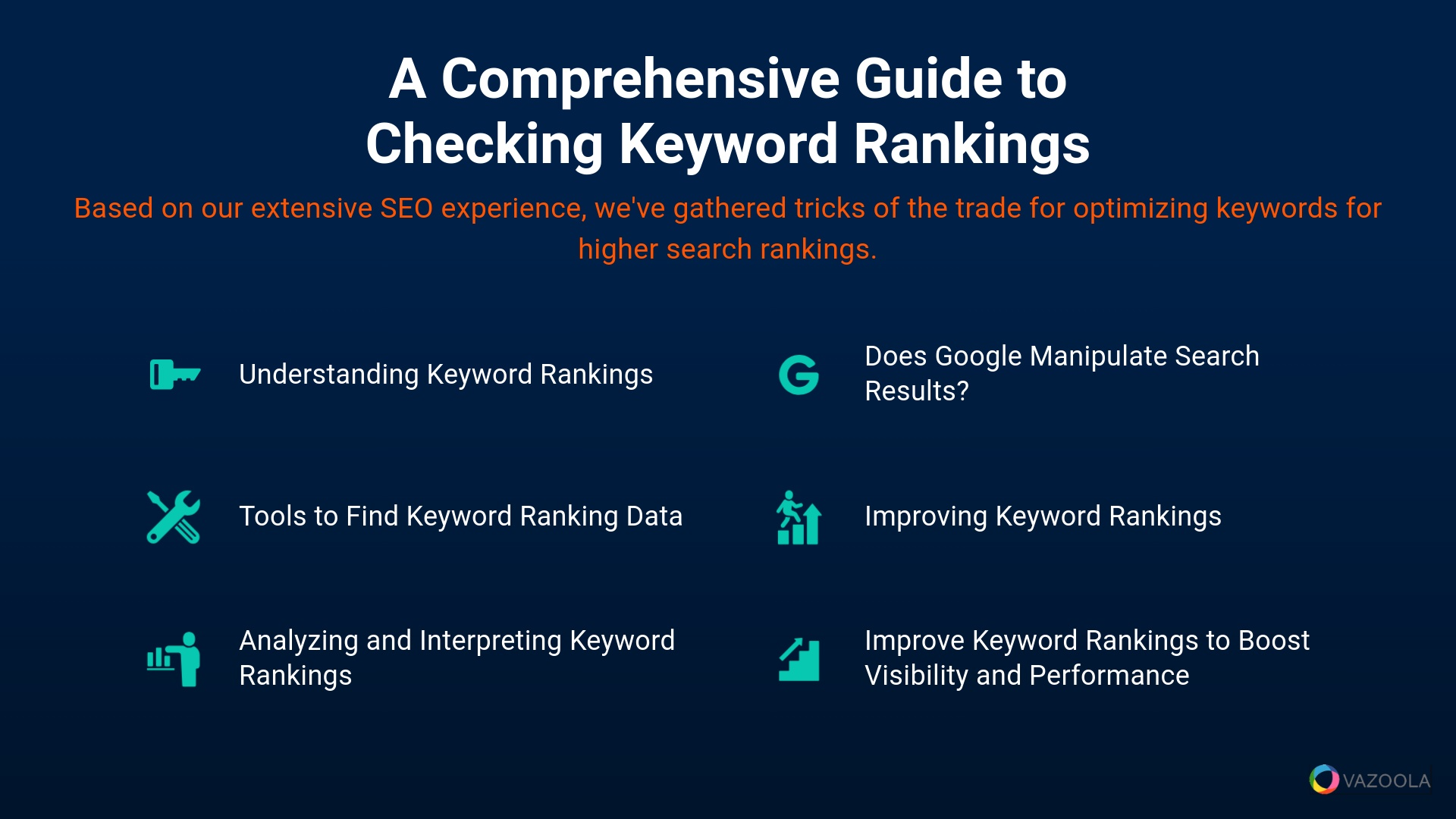
Key Takeaways
-
Learn the importance of tracking keyword rankings.
-
Discover various tools to check keyword rankings.
-
Get tips on interpreting ranking data and improving keyword performance.
Table of Contents
Understanding Keyword Rankings
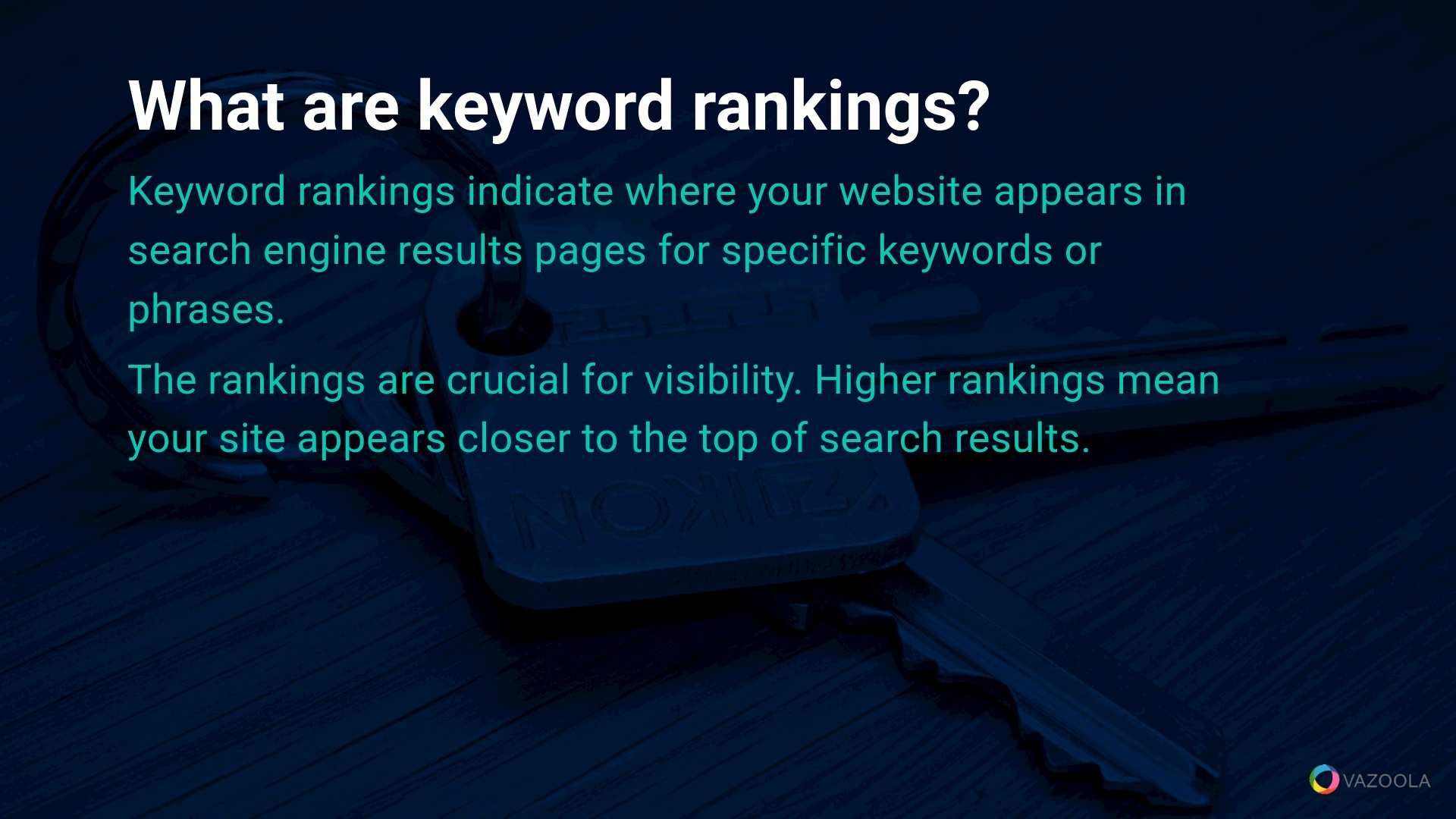
What are keyword rankings, and how do they impact SEO? Do they help boost monthly search volume? What is an SEO rank, and how does Google use it to rank websites? Keep reading for the full scoop.
Definition of Keyword Rankings and Their Significance in SEO
SEO keyword rankings indicate where your website appears in search engine results pages for specific keywords or phrases.
Our work at Vazoola has taught us that rankings are crucial for visibility. Higher rankings mean your site appears closer to the top of search results.
That increased visibility can lead to more traffic, which, in turn, leads to more conversions and sales.
When users easily find your site in their searches, they are more likely to visit and engage with your content, so keyword rankings are a key focus of any SEO strategy.
Monthly Search Volume
Monthly search volume refers to the average number of times users search for a specific keyword each month. The metric can vary across different keyword research tools because of their unique data sources and algorithms.
Understanding monthly search volume helps identify popular keywords that are worth targeting. By focusing on keywords with higher search volumes, you can attract more traffic to your site.
However, it's important to balance high search volume with keyword difficulty, since highly competitive keywords may be harder to rank for.
How Google Ranks Websites
The search giant's ranking algorithm evaluates a variety of factors to determine where a website should appear in Google search results.
Our experience has shown key considerations include content quality, backlinks, and user experience. High-quality, relevant content that answers users' queries is essential.
Reputable backlinks from other sites signal credibility and authority. A positive user experience, characterized by fast load times and mobile-friendliness, also plays a significant role.
By optimizing for these factors, you can improve your website's rankings and increase its visibility in search engine results.
Pro Tips:
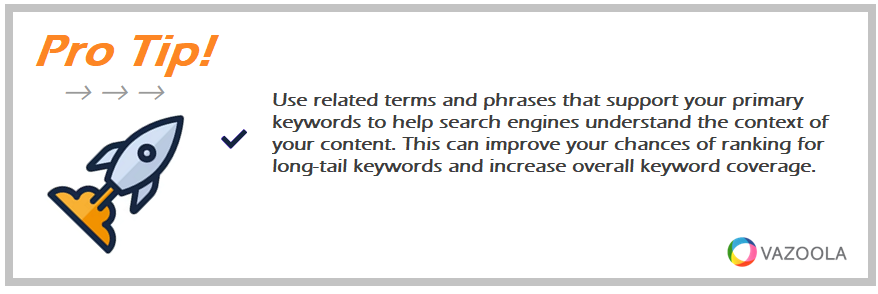 Use related terms and phrases that support your primary keywords to help search engines understand the context of your content. This can improve your chances of ranking for long-tail keywords and increase overall keyword coverage.
Use related terms and phrases that support your primary keywords to help search engines understand the context of your content. This can improve your chances of ranking for long-tail keywords and increase overall keyword coverage.
Tools to Find Keyword Ranking Data
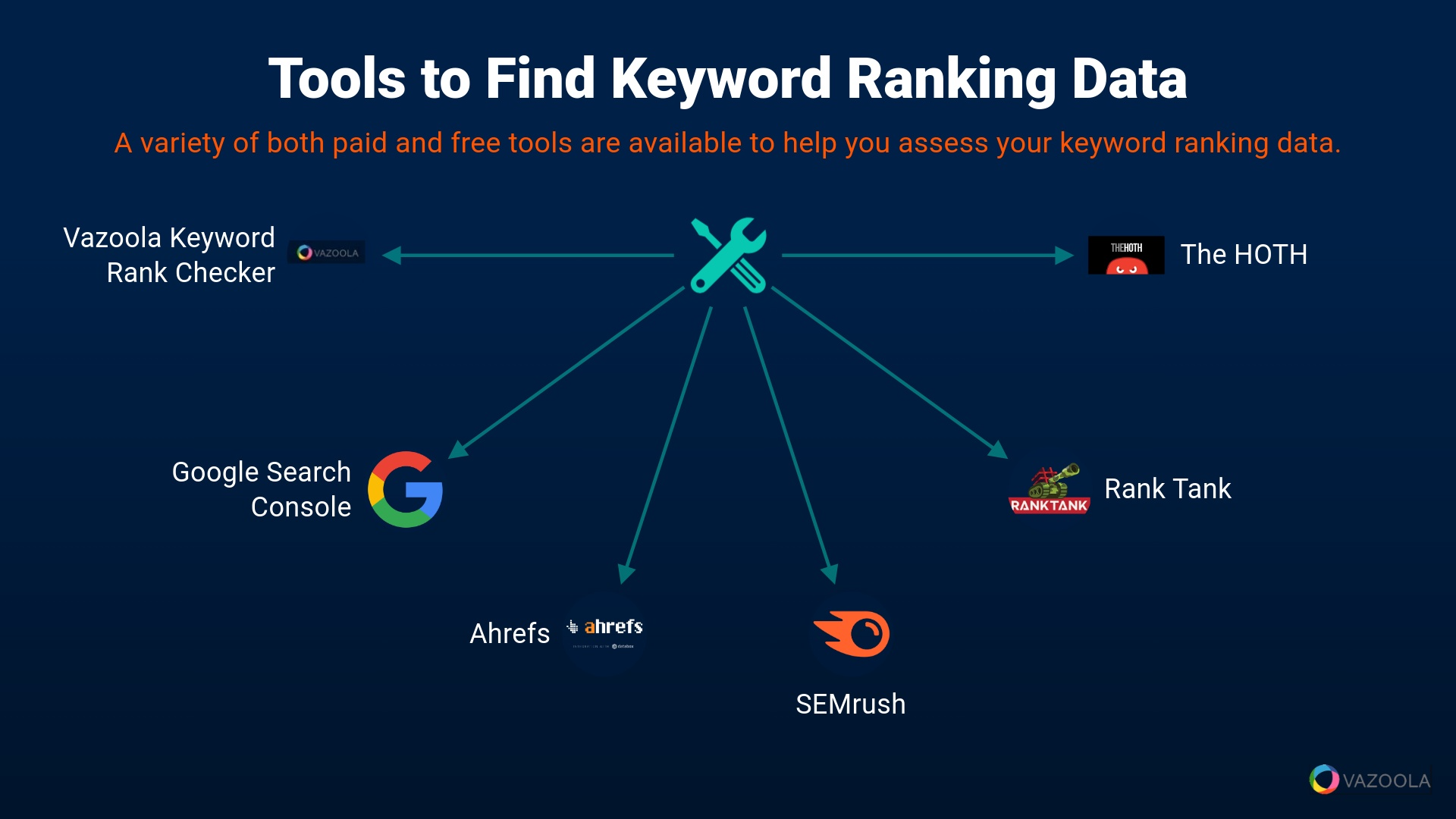
How do you know how different keywords will rank? Fortunately, you don’t need any specialized expertise to analyze keyword rankings. A variety of tools – both free and paid – are available to assist your endeavors.
Vazoola Keyword Rank Checker
Our free keyword rank checker tracks your site's keyword rankings and provides detailed reports. It’s easy to use, and it provides both accurate data and customizable reports. You can use this tool to regularly monitor keyword performance and adjust your SEO strategy accordingly.
Google Search Console
How do you check keyword ranking on Google? A free tool from Google helps you track Google keyword rankings and site performance. Google Search Console integrates with other Google tools for valuable insights. While the tool can be limited compared to paid tools – and the interface can be complex for beginners – it provides details about impressions, clicks and average position, among other metrics.
SEMrush
A comprehensive SEO tool for keyword tracking, SEMrush provides detailed data, competitor analysis and keyword research capabilities. Mastering the tool requires a steep learning curve, but once mastered, users can track keyword rankings, discover new keyword opportunities and analyze their competitors’ strategies.
Ahrefs
Ahrefs offers a powerful tool for keyword tracking and backlink analysis. With accurate data and an expensive backlink database, the tool provides detailed reports. Ahrefs has a higher cost compared to some tools, but it can be worth it for those seeking a comprehensive tool that tracks keyword rankings and analyzes backlinks.
RankTank
RankTank is another popular tool for understanding keyword rankings. It integrates with Google Sheets for better keyword tracking – and it’s free to boot. While RankTank has limited features compared to some paid tools, it’s great for automating keyword tracking, and it offers customizable templates to get your started.
The HOTH
This tool provides keyword rank checking and comprehensive SEO services. The HOTH is popular for its user-friendly interface and its helpful customer support. While the service can be on the pricier side, the rank checker tool is perfect for monitoring keyword performance.
Pro Tips:
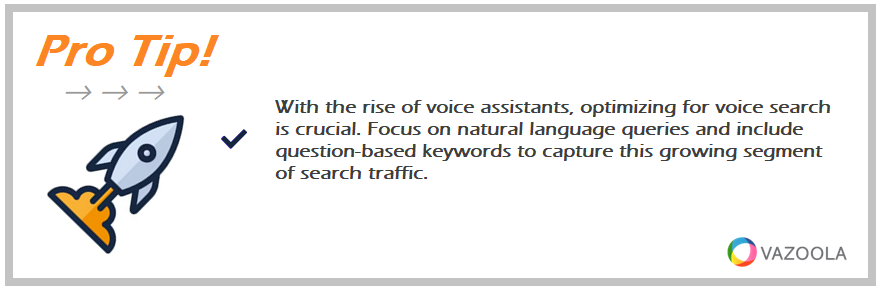 With the rise of voice assistants, optimizing for voice search is crucial. Focus on natural language queries and include question-based keywords to capture this growing segment of search traffic.
With the rise of voice assistants, optimizing for voice search is crucial. Focus on natural language queries and include question-based keywords to capture this growing segment of search traffic.
Analyzing and Interpreting Keyword Rankings
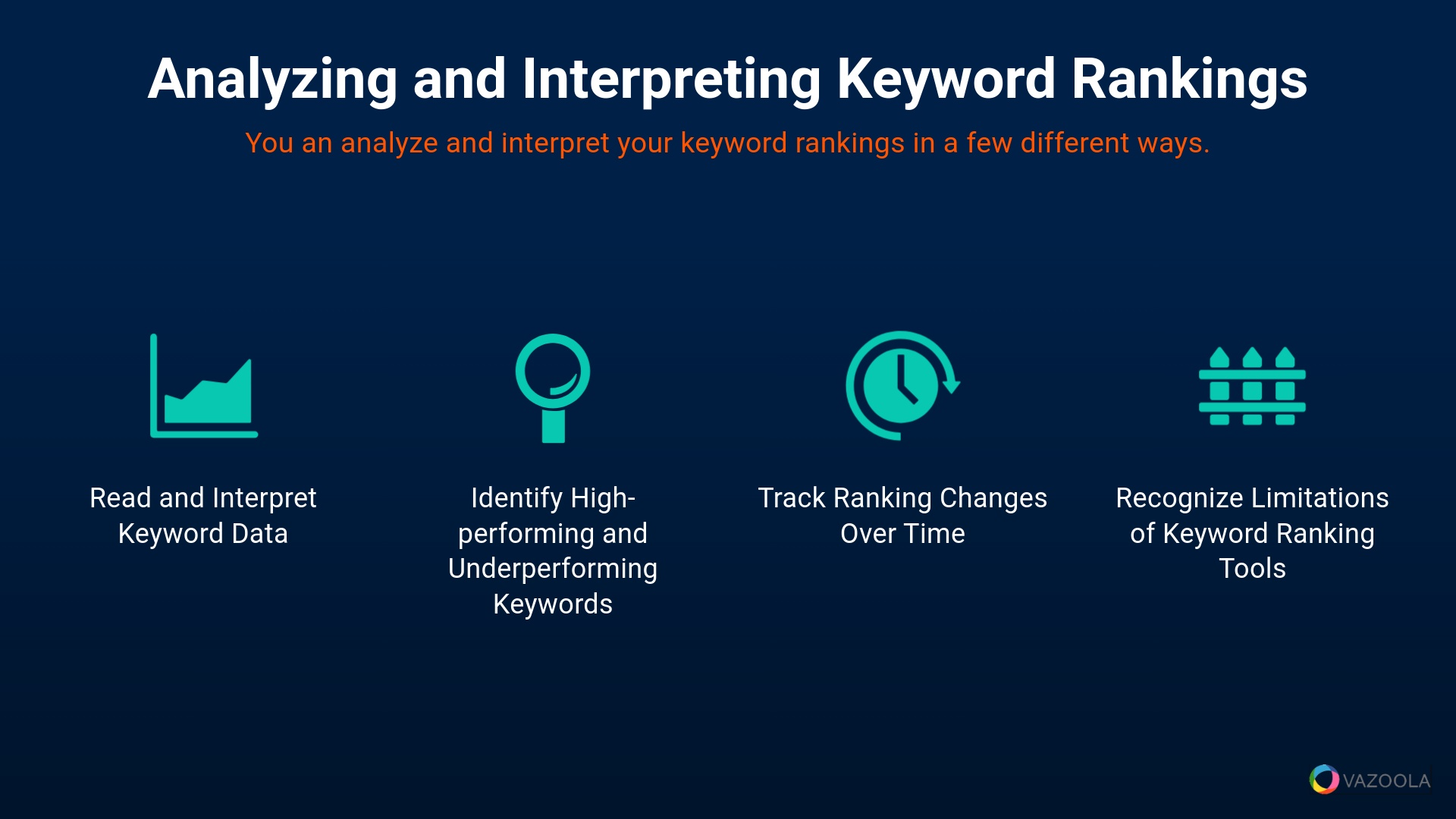
So, now you know of some great tools for tracking keyword rankings, but what do you do with all of that information? We’ve broken down some ways to interpret keyword rankings to help you along your way.
Reading and Interpreting Ranking Data
A few simple steps can help you evaluate keyword ranking data, regardless what tool you employ. When reading and interpreting ranking data, make sure you:
-
Look at metrics like average position, impressions, clicks, and CTR.
-
Identify keywords with high impressions but low CTR for content optimization.
-
Track changes over time to understand the impact of your SEO efforts.
Identifying High-Performing and Underperforming Keywords
What’s the difference between how a keyword ranks and how it can potentially rank? When you identify both high-performing and underperforming keywords, you get a better idea of which direction you want to go for optimization. Keep in mind:
-
High-performing keywords are those with high impressions, clicks, and top positions.
-
Underperforming keywords have low rankings or CTRs that need extra optimization.
Tracking Ranking Changes Over Time
Keyword rankings can change over time, whether it’s from updates to your site or changes in audience behavior. When tracking your ranking changes over time, remember to use date range filters in tools to compare performance over different periods. Also be sure to identify trends and fluctuations to refine your SEO strategy.
Limitations of Keyword Ranking Tools
No keyword ranking tool is truly all-inclusive. One tool might offer a feature, that another doesn’t. They also might assess rankings differently. Remember, no tool fully understands Google's algorithms. Tools sometimes show slight variations in data due to different methodologies.
Pro Tips:
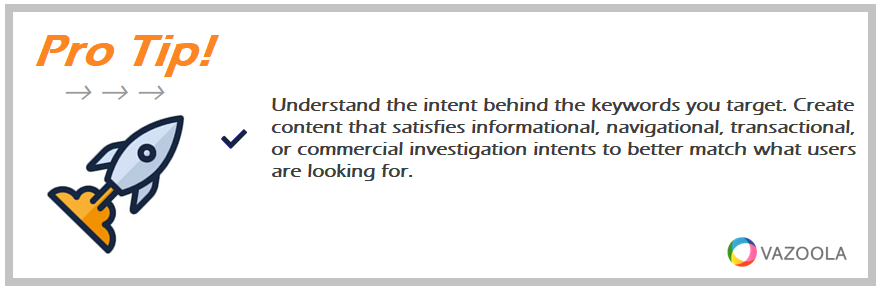 Understand the intent behind the keywords you target. Create content that satisfies informational, navigational, transactional, or commercial investigation intents to better match what users are looking for.
Understand the intent behind the keywords you target. Create content that satisfies informational, navigational, transactional, or commercial investigation intents to better match what users are looking for.
Does Google Manipulate Search Results?
Unsure about how to check keyword ranking in Google. You’re not alone.
It’s been rumored that Google manipulates search results, and in a way it’s true – just not in a nefarious manner. Instead, Google’s algorithms personalize results for a better user experience.
Personalized Search Results
Google personalizes results based on user behavior, location, and search history. This can affect the accuracy of keyword ranking data. What is top ranked for one user, might not be what appears for another.
Impact on Keyword Ranking in SEO Accuracy
Google’s personalized results often impact keyword ranking accuracy. The personalized results may not reflect a neutral search perspective. However, if you use incognito mode or live rank checkers, you’ll obtain more neutral data.
Pro Tips:
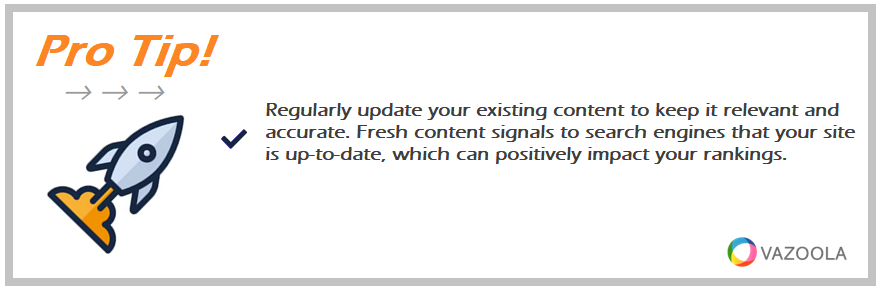 Regularly update your existing content to keep it relevant and accurate. Fresh content signals to search engines that your site is up-to-date, which can positively impact your rankings.
Regularly update your existing content to keep it relevant and accurate. Fresh content signals to search engines that your site is up-to-date, which can positively impact your rankings.
Improving Your Keyword Rankings
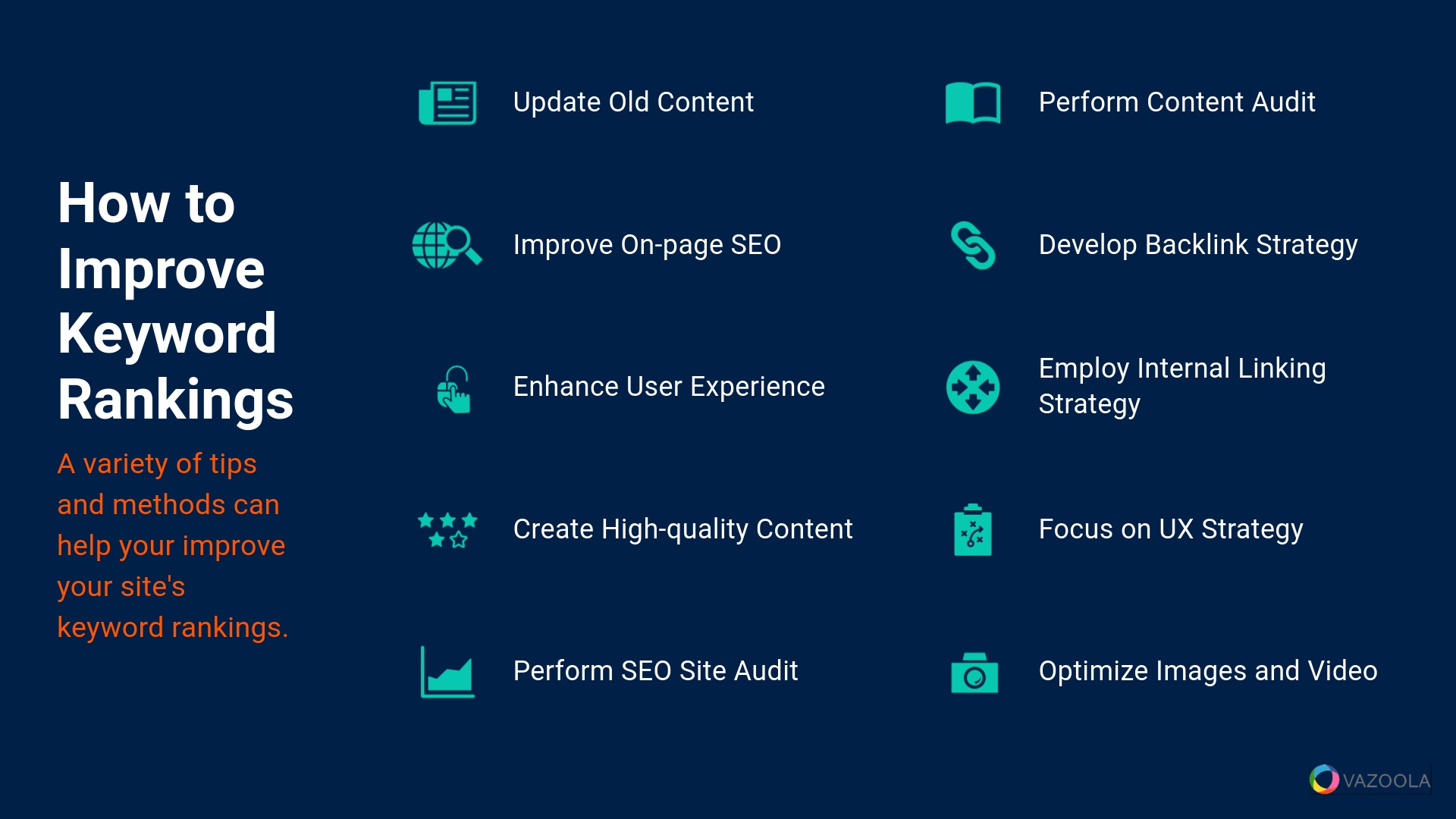
So, how do you improve your keyword rankings? After all, it’s one thing to analyze the data, it’s entirely another to turn those insights into action.
If you need to improve your keyword rankings (and let’s be honest, who doesn’t?), consider the following tips for optimizing the quality and relevance of keywords within your content:
-
Update Existing Content: Regularly refresh content with new information and keywords.
-
Improve On-Page SEO: Optimize meta tags, headers, and internal links.
-
Enhance User Experience: Improve page load times and mobile responsiveness.
-
Create High-Quality Content: Write informative, engaging, and original content targeting relevant keywords.
Perform SEO Site Audit
Conducting regular technical SEO audits is an important part of maintaining and improving your website’s performance. SEO audits help identify issues that are hindering your site’s visibility. These might include broken links, slow page load times, or mobile usability problems.
By systematically checking elements like crawlability, site structure, and metadata, you make sure your website is optimized for search.
Perform Content Audit
Regularly reviewing and updating your content is another important aspect of maintaining its relevance and quality. Auditing content means assessing your existing linkable assets to identify outdated information, gaps in coverage, or opportunities to incorporate new keywords.
By refreshing content with updated data, better-targeted keywords, and enhanced readability, you improve user engagement and make sure your material meets current search intent.
Develop Backlink Strategy
Acquire quality backlinks from reputable websites to boost your authority and rankings. We cover how to get in this post, 12 Effective Link Building Methods.
Employ Internal Linking Strategy
Use internal links to connect relevant content and distribute link equity throughout your site. Learn more about internal linking.
Focus on UX Strategy
Improve user experience signals like bounce rate and time on site to enhance rankings.
Optimize Images and Video
Ensure images and videos are optimized for search engines, with proper alt text and file sizes. Find out best practices for alt text for images.
Pro Tips:
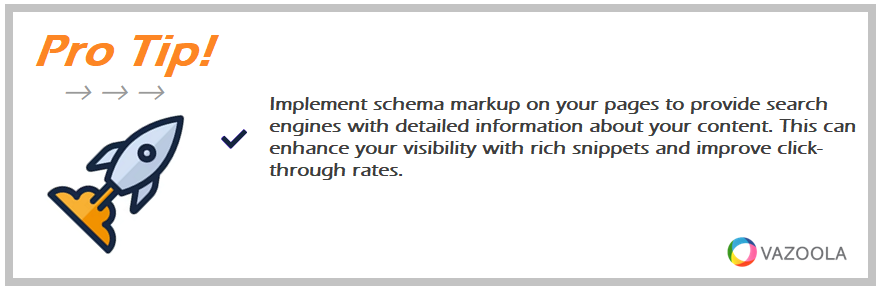 Implement schema markup on your pages to provide search engines with detailed information about your content. This can enhance your visibility with rich snippets and improve click-through rates.
Implement schema markup on your pages to provide search engines with detailed information about your content. This can enhance your visibility with rich snippets and improve click-through rates.
Elevate Keyword Rankings to Boost Visibility and Performance
Are you ready to find your Google keyword ranking? After all, tracking keyword rankings is vital for improving your site's visibility and performance.
Google Search Console offers valuable insights to help you monitor and optimize your keywords effectively. Vazoola also offers a useful free keyword rank checker.
Here at Vazoola, we regularly use these tools, along with other SEO resources, to ensure ongoing success in your SEO efforts.
Start leveraging keyword ranking tools today to take control of your keyword rankings and drive better results for your website.
Pro Tips:
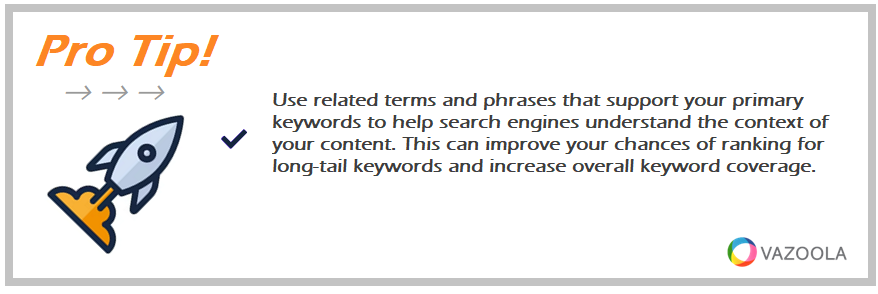 Use tools like SEMrush or Ahrefs to analyze your competitors' keyword strategies. Identify gaps in their keyword coverage and capitalize on opportunities they might be missing.
Use tools like SEMrush or Ahrefs to analyze your competitors' keyword strategies. Identify gaps in their keyword coverage and capitalize on opportunities they might be missing.

